5. Loverboy (Kevin Bacon, 2005)
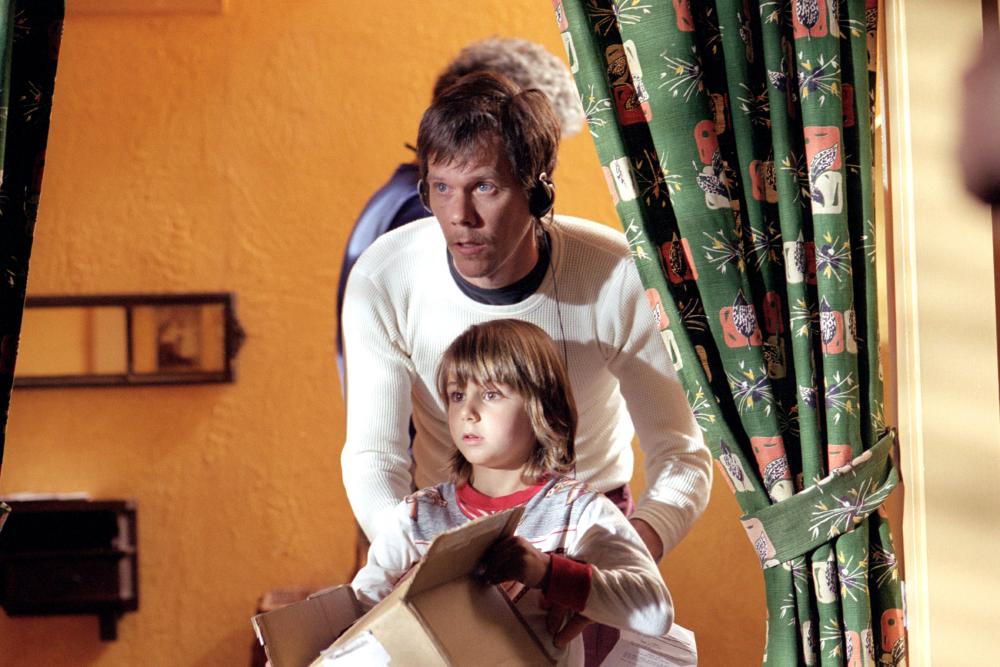
Being Bacon’s second directed feature, one would think that he would learn from the experiences of directing his first – Loverboy, however, demonstrates a complete distasteful lack of skills from his side, coming out in the form of combining the extreme ends of a comedy and a psychological drama in the most baffling fashion, creating an obliviously insensate protagonist and often getting confused with his own time setting – these are just the few of the questionable choices he makes.
The plot is an adaptation of Victoria Redel’s novel of the same name, following a young woman (played by Bacon’s wife Kyra Sedgwick, which could explain the lack of direction in the character if it meant that the two couldn’t work together on a professional level) who is determined to have a child that she will raise as the greatest parent in the world – something that her own parents were not.
But when the child reaches the age of 6 he begins to question his mother as he doesn’t understand why he is stored away from the world without being allowed to go to school or have friends, and more importantly why his mother insists on his nickname ‘loverboy’.
What could be and is in fact a deep and interesting plot is completely crushed and thrown away into the nearest pit along with Bacon’s understanding of the mother’s character of being overprotective with no real bad wants for her son, despite the presumptuous flashbacks to her childhood.
4. Sonny (Nicolas Cage, 2002)
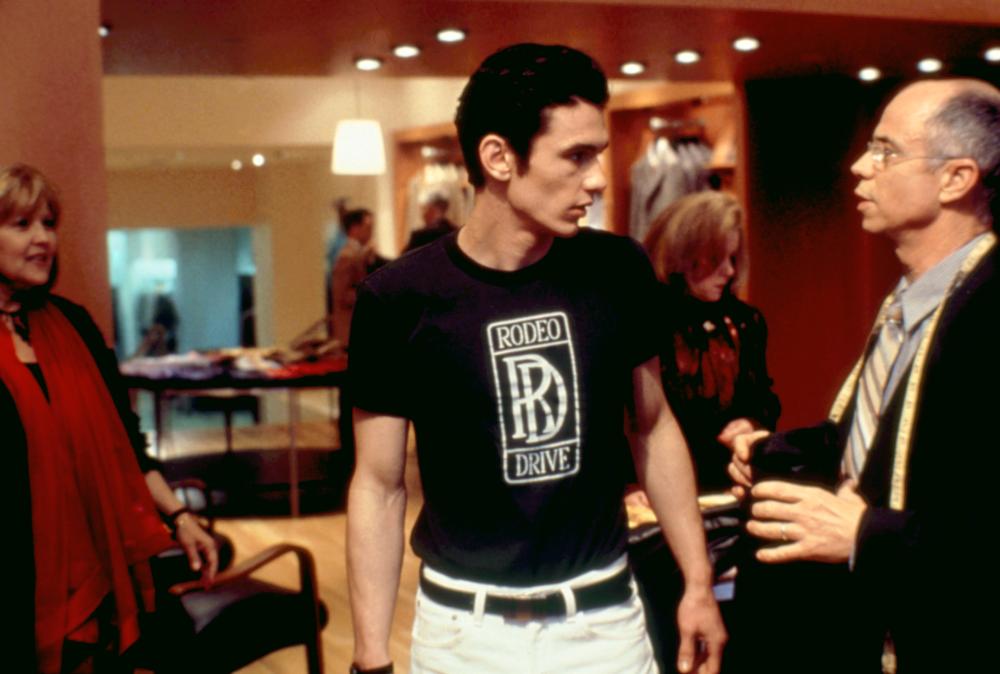
Going back to even before Cage was cast out as lacking acting skills, he showed the world that he lacks the necessary talent to stand behind the camera and direct the action. The plot as an overview seems to have potential in the genre of an indie drama, but the way it is executed just helps to prove that a good story in the hands of a bad director is a sure recipe to a disaster.
The story follows Sonny (James Franco), who after quitting the army returns to New Orleans to try to establish himself in the world. However his past of working at his mother’s (Brenda Blethyn) brothel as a successful gigolo seems to not take its hands off him as he is forced into the unpleasant business once again.
The only positive outcome of this awful situation is his meeting and love affair with a new prostitute Carol (Mena Suvari) with whom they plan an escape to start a better life. But as most things in his life, their flight doesn’t follow through caused by several limitations in the form of Carol’s old and rich customer.
Critics didn’t go easy on the first time film maker, and no wonder, considering everything from performance to story portrayal was extremely poorly – and there is only one man to blame. The acting combined with the script work jumps in your face when it tries to be subtle and the period of the story is hinted only through a single song. The movie is a composition of awful lines and scenes that make you question how Sonny managed to get onto the big screens at all.
3. Harlem Nights (Eddie Murphy, 1989)
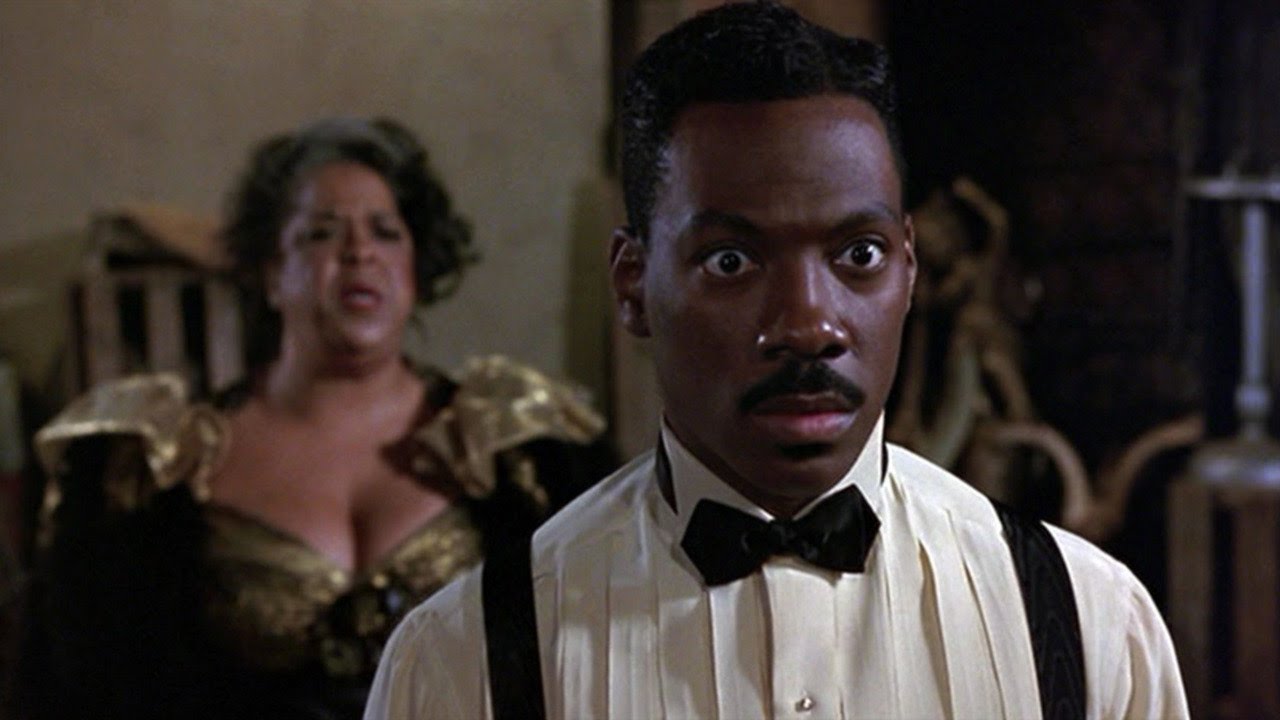
Some writers try out the director’s role in order to broaden their creative roles and challenge themselves, while others decide to go begind the camera simply to put more light upon themselves. Eddie Murphy falls into the second category, and at that the light he arrogantly puts upon his acting with his directing debut is quite dim.
It appears that Murphy created this ‘masterpiece’ because he felt that other directors were not giving him a role as serious and big as he deserves. And so, he decided to take matters into his own hands and voilà, Harlem Nights was born.
Set in the 20’s, the plot revolves strictly around Murphy’s own character Quick, as well as his partner ‘Sugar’ Ray (Richard Pryor) who are owners of an illegal gambling centre who are faced with the struggle of staying afloat while facing competition from corrupt gangs and police.
Murphy is solely to blame for his failure, being the writer, director and star of his own show, putting himself into a corner as he lacks development and creativity in all aspects, from plot to characters – while his directing hand shouts out orders with no purpose.
2. Star Trek V: the Final Frontier (William Shatner, 1989)
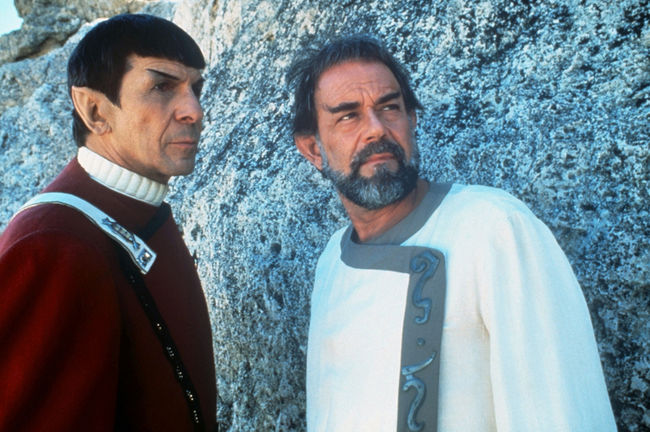
When it comes to taking on the responsibility of directing a big and popular franchise such as Star Trek, it is important to make sure that you really are the right person, holding the necessary talent to do so. William Shatner’s role of a director in the much awaited fifth episode of the series was so terrible that he was forced to apologise for the disappointment.
Shatner blamed the disaster on lacking help in budget allocation, leading to a non-dramatic and low-budget ending, rather than the intense villainous outburst it was supposed to be; but perhaps he simply misjudged the list of responsibilities on the director’s plate, as well as his lack of organisational skills.
The explanation for the ending however, doesn’t do justice to the atrocity that came beforehand – the undeveloped plot that lacks not only any decent action but also doesn’t include a single character that you can come to relate to or care enough about to feel anything at all.
When taking on such big themes as searching for God and knowledge which is what is supposedly explored in The Final Frontier, it is important to make sure that there is still enough things going on to not make the action demanding franchise feature an dull and unimaginative existential crisis. It can definitely be confirmed that Shatner should have stuck to his acting role in the movie and left the bigger job to someone more experienced.
1. The Brave (Johnny Depp, 1997)
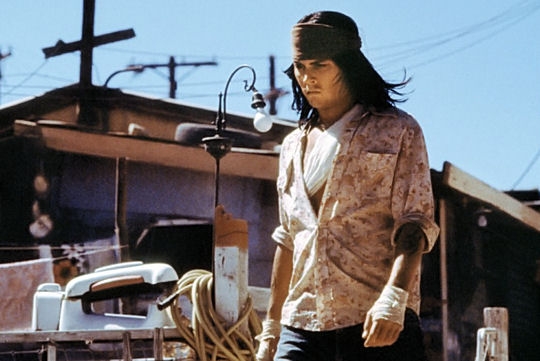
The Brave is just another example how a good Hollywood actor sometimes should really just stick to acting. Premiering at the Cannes film festival, the movie got the worst reception, with critics scolding Depp with no mercy, making the actor feel so insecure about his passion project that he refused to release the movie in the US, hoping the shame would be forgotten.
It is indeed a shame, considering how truly movingly Depp talked about the theme of the movie which he said was so close to his heart – sacrifice for family. The story non credibly in both realistic and allegorical senses follows Raphael (Johnny Depp) living out in some unspecified desert location with his family.
Not being able to provide for them, he jumps at the opportunity to get any sort of work which leads him to a secret meeting with mysterious McCarthy (Marlon Brando) who proposes to pay him a grand sum of 50,000 in exchange for his life that will be taken through murder a week later, with vague context apart from a hint that this will be done for a movie.
The main problem of the movie is the script, that Depp as co-writer and director didn’t realise lacked authenticity as well as decent dialogue. The movie tragically wastes good acting, including from Depp himself, due to the scripting failure giving characters little to work with, as well as the lack of a decent plot structure and a bizarre and indeed ‘brave’ ending, considering the abrupt and incomprehensible turn of events.
Author Bio: Polina is an aesthete and cinephile, devoted to using the arts to revive “sex, drugs and rock’n’roll” in hopes of loosening up the world by defying the unnecessary social restrictions. When taking time off her edgy crusade she can be found soaking in a bubble bath with a Dostoevsky novel.